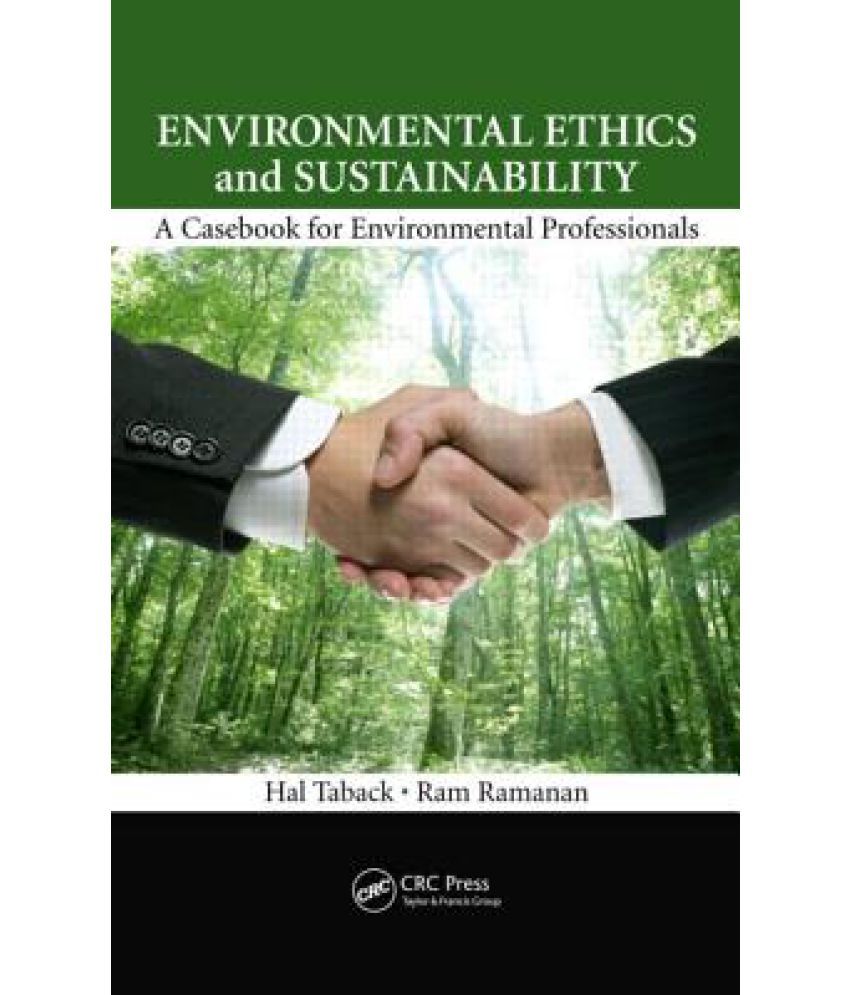Something went wrong. Please refresh the page and try again.
Something went wrong. Please refresh the page and try again.
Notifications can be turned off anytime from settings.
Item(s) Added To cart
Qty.
Something went wrong. Please refresh the page and try again.
Something went wrong. Please refresh the page and try again.
Exchange offer not applicable. New product price is lower than exchange product price
Please check the updated No Cost EMI details on the payment page
Exchange offer is not applicable with this product
Exchange Offer cannot be clubbed with Bajaj Finserv for this product
Product price & seller has been updated as per Bajaj Finserv EMI option
Please apply exchange offer again
Your item has been added to Shortlist.
View AllYour Item has been added to Shopping List
View AllSorry! Environmental Ethics and Sustainability is sold out.


You will be notified when this product will be in stock
| ||||||||||||||
Brief Description
"The environmental professional must be educated to be ethical, and more importantly, trained through frequent participatory workshops with real world scenarios to be able to make the right choices when faced with environmental dilemmas. This book serves as a reference and a resource casebook that will present current real world situations and provide perspectives to numerous environmental scenarios. It provides specific guidance as to what is ethical behavior, how to judge it, and provide the foundations of ethical behavior to guide the professional in facing and resolving ethical dilemmas. In addition, the authors present a framework for ethical decision making"--
Learn More about the Book
Environmental Ethics and Sustainability: A Casebook for Environmental Professionals introduces a decision-making model constructed from the viewpoint that ethics are not about the way things are, but about the way things should be.
The first part of the book covers natural human instincts, human attitude, treatment of other species and the natural world, and fundamental concepts in environmental decision making in the public policy arena. It also provides insight and specifics on how to develop an ethics culture in an organization as well as conduct an environmental ethics education program that trains leaders, professionals, and students.
The second part of the book identifies and deals with numerous dilemmas in a case-study format, offers options, tests ethical values, and offers practice to the environmental professionals in making the right choice and evaluating the justification for those decisions.
The authors of this book explore the notion that doing the right thing is not a natural human instinct, and that the techniques needed for resolving an ethical dilemma require training. The book defines ethics as "the difference between what a person has the right to do and the right thing to do!" It details a framework for understanding and resolving various ethical claims and concentrates on providing hands-on practical training for environmental practitioners and students aspiring to become environmental leaders and professionals.
Review Quotes
1.
"This book is a good read on a topic that is timeless ethics. The focus on environmental ethics and hands-on learning make the book valuable for students learning about sustainability and environmental issues."
Latha Ramchand, Dean and Professor, Finance, C.T. Bauer College of Business, University of Houston, Texas
"Sustainable value creation requires an ethical framework that guides the strategy and behavior of organizations. This book offers a convincing case for why business must embrace purpose as well as profits if we are to safeguard our planet's natural resources. Through diverse case studies, as well as a holistic survey of ethical theory and practice, the authors provide a valuable framework for how our institutions-and ourselves-can be their best."
Dipak C. Jain, INSEAD Chaired Professor of Marketing and former Dean of INSEAD and Kellogg School of Management, Northwestern University
2.
"Sustainable value creation requires an ethical framework that guides the strategy and behavior of organizations. This book offers a convincing case for why business must embrace purpose as well as profits if we are to safeguard our planet's natural resources. Through diverse case studies, as well as a holistic survey of ethical theory and practice, the authors provide a valuable framework for how our institutions and ourselves can be their best."
Dipak C. Jain, INSEAD Chaired Professor of Marketing and former Dean of INSEAD, France and former Dean of Kellogg School of Management, Northwestern University, Illinois, USA
"This book is an apt and timely publication, and a compelling reading, especially in this decade of raising moral and ethical decadence. Hal Taback and Ram Ramanan have deftly examined and discussed the complex tapestry of psychological (human behavior), philosophical, religious, economic, social, organizational, and public policy dimensions of "environmental ethics" with a unique and incredible perspective. The expanded and overarching connection of "ethics," as the fourth component to the traditional triple bottom-line (people, planet, and profit) of sustainability is fascinating. The subtle distinction between "ethical" and "moral" aspects for the environmental profession is remarkable. The 51 attention-grabbing real world "on-the job" conflict and judgment-decision case studies are persuasive, tackle the moral-and-ethical dilemmas convincingly, and offer practical insights and solutions to environmental practitioners and students aspiring to become environmental professionals for "doing the right thing" rather than relying on instincts."
Krish Ravishankar, Director, Worldwide Environmental Affairs & Social Responsibility, Occidental Petroleum Corporation, Houston, Texas
"Part of the book might be sustainability 101 for many. The ethical dilemmas in this book is a must read for big and small consultancy firms as well as fo
The images represent actual product though color of the image and product may slightly differ.
Register now to get updates on promotions and
coupons. Or Download App